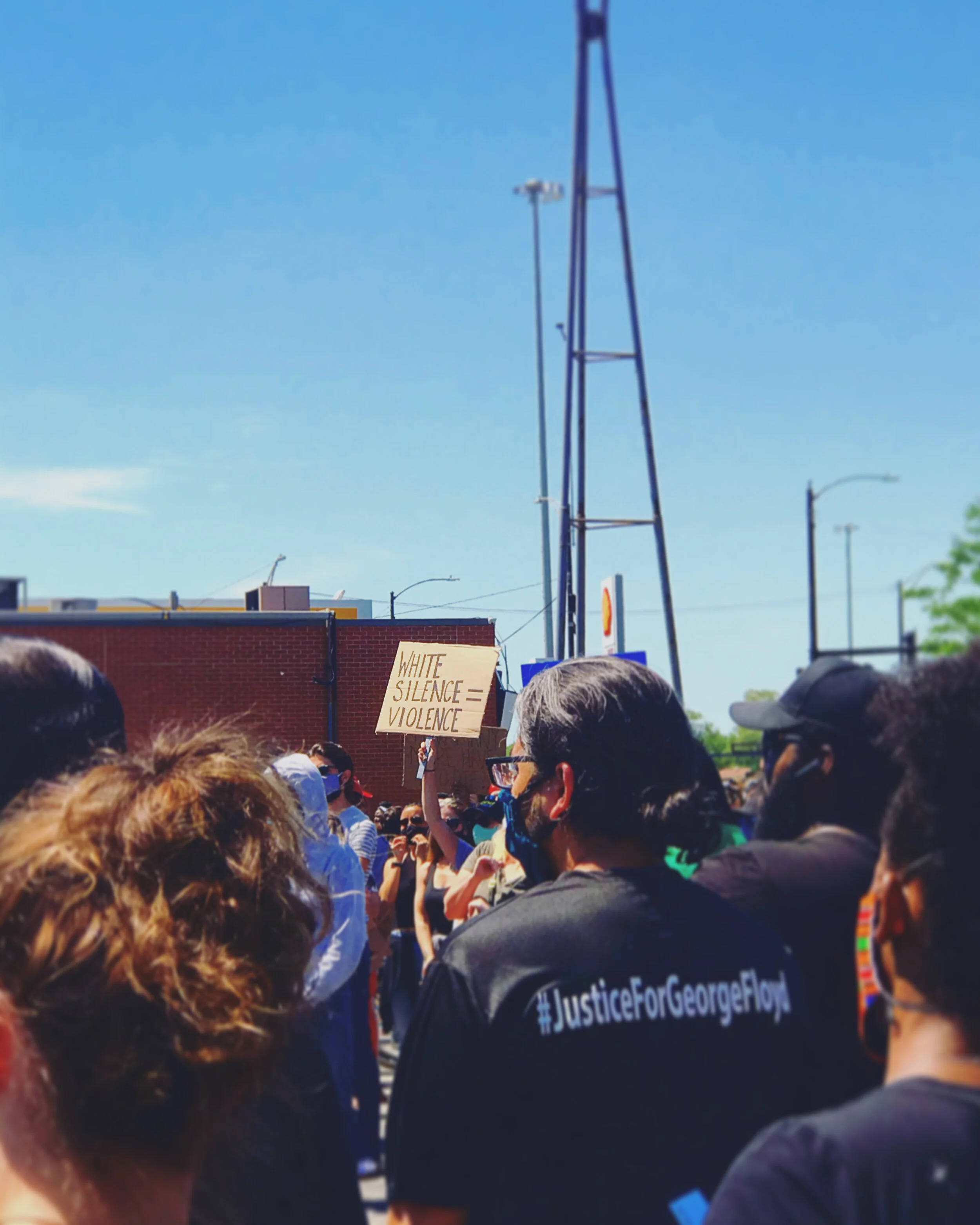Week of Why Day 3 - Sent June 8, 2020
Dear Family and Friends,
To begin today’s email, I want to share some breaking news:
“Nine members of the Minneapolis City Council — a veto-proof majority — pledged on Sunday to dismantle the Police Department, promising to create a new system of public safety in a city where law enforcement has long been accused of racism.”
There has been no specific information about what the replacement will look like, but this commitment to change and the understanding from policymakers that these issues are systemic is a major win for this movement and will serve as an example for other cities. Read more here.
As a reminder, over the course of the week I will be highlighting 7 different organizations that support black lives and communities of color and discussing important questions that I’ve been asking myself, such as “why is this happening?” “why is this important?” and “why do we need to get involved?” Despite the research I’ve put into this project, I know that I still have a lot to learn. I am in no way an expert or trying to speak on behalf of the black community, but rather am attempting to use my voice and privilege as a white person to amplify those whose voices and stories have been typically ignored and excluded from popular narratives throughout history.
For Day 3 of Week of Why, I am highlighting the organization The Bail Project, a national non-profit working to end mass incarceration by identifying and working with partners in local communities to redefine pretrial detention and the need for money bail. Their vision is as follows:
“Our goal is to put ourselves out of business. We look for a community of allies and supporters with a shared mission to combat mass incarceration and establish a pretrial alternative that is grounded in the presumption of innocence for all, regardless of race, income, or charge.”
The Bail Project works on mass incarceration holistically by taking actions like preventing the creation of new jails, supporting local movements for equality, and providing data on bail reform. However, their strategy mainly revolves around posting bail for people who can’t afford it. When people are arrested, they are presumed not guilty under the law, but are still left to sit in jail cells, cut off from their families and communities, unless they can buy their freedom.
Our current system makes it so that people who cannot pay suffer more than those who can, ultimately criminalizing poverty itself. This issue is systemic in nature as black people and people of color are arrested and detained pretrial at disproportionate rates, at least 10-25% more than white people according to this study.
The Bail Project’s vision identifies the main issues with our current pretrial system as the following three things:
People who are arrested and detained pretrial are disproportionately black people and people of color.
“...As with all other areas of the criminal legal system, people of color bear a far heavier burden due to an enduring legacy of racism and economic disenfranchisement.”
The human and psychological toll of being in prison, especially when innocent, is catastrophic and can devastate families for generations.
“People who are jailed pretrial often wait months, and sometimes years, for their cases to resolve. In the meantime, they can lose their jobs, homes, children, and critical community ties. Inside jail, people risk sexual violence, the deterioration of their mental and physical health, and the infliction of lasting trauma. They feel enormous pressure to accept an unjust or wrongful conviction just to go home.”
The financial costs of the US prison system are bewildering, with about $14 billion annually coming from taxpayer money that could instead be spent on efforts to support communities with upstream interventions, decreasing crime from the source.
“Factoring in the impact of pretrial detention on families, communities, and social services, the true economic cost of this crisis has been estimated to approach $140 billion annually.”
What can you do to get involved and learn more?
Donate directly to The Bail Project by clicking here.
Interesting note: “Since bail money comes back to us when cases close, we're able to recycle every dollar donated at least twice per year.”
Click here to read their vision, “After Cash Bail, A Framework for Reimagining Pretrial Justice.”
While reading through the document itself is a great way to get started, consider asking friends and/or family to join you in reading and then have a group discussion.
Click through The Bail Project’s website, linked here.
They have a ton of information about systemic racial inequality in the US prison system, as well as links to many other resources.
Watch 13th on Netflix
This documentary goes through the timeline of racism and racial justice movements in the US from the beginnings of slavery to now, including a focus on how governmental policies and the war on drugs formed our prison system into what it is today.
Let’s make sure that as the days pass, we continue to fully engage with the movement so that it cannot die out until real change has been made. I understand how the news can be mentally and emotionally draining, but these issues have only been media headlines for about 13 days. Black communities have been fighting for over 400 years. Please keep this in mind.
Remember that in just reading and sharing this email you are already taking action to support the movement.
As always, if you feel like I missed something, would like to engage in further conversation, or have questions, please reply to this email (reply individually, not reply all) and I would be happy to continue the discussion or recommend further resources.
As mentioned in the Day 1 email, My Block My Hood My City held a Chatham Peace Walk yesterday; attached are a few of my photos.
Sincerely,
Grace Hochberg


